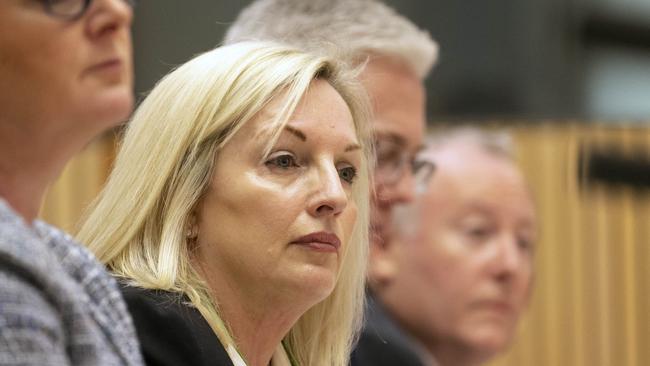Australia Post bosses get a blast from Senate inquiry
Senators have been scathing about Australia Post and its CEO Christine Holgate over responses to a parliamentary inquiry.

Senior Australia Post executives and staff showed “a lack of understanding of the critical scrutiny role played by the Senate” and have been urged to complete remedial training along with other government businesses to ensure they remain fully accountable to Australian taxpayers.
The Senate has completed its inquiry into regulatory changes to Australia Post, which will allow it to deliver letters every other day in cities and push out delivery times on some routes.
The inquiry was scathing about responses provided by Australia Post, which during the hearings delivered evidence from chief executive Christine Holgate and general counsel and corporate secretary Nick Macdonald.
“The committee is concerned that some responses provided by Australia Post to senators’ questions suggest a lack of understanding of the critical scrutiny role played by the Senate, and of the particular responsibility of Australia Post as a publicly-owned entity to be accountable to the people of Australia through the parliament and its committee system,” the inquiry’s committee said in its report.
“All GBEs (government business enterprises) must ensure senior staff and officials have a clear understanding of the importance of parliamentary scrutiny, and have the skills and capability to meet their obligations in relation to committee processes.”
The committee highlighted as an example the postal service’s response to questioning about alleged efforts to monitor Australia Post staff for leaks, labelling it as “inadequate”.
Ms Holgate could not answer during the hearing and instead took the question on notice, replying in writing later.
“Australia Post maintains a risk-based security program. Details of that program are commercial-in-confidence. Publication of such information is likely to cause detriment to Australia Post as a consequence of the details of its security program being publicly available,” the postal service said.
But the Senate committee didn’t buy the response.
“Officials again rely on the ground of commercial-in-confidence to claim immunity from an obligation to provide a detailed response,” it said.
“It is unclear to the committee why the ground for refusal in this case would be commercial in nature; no specific detriment, commercial or otherwise, has been outlined.
“It appears that no consideration has been given to providing the information to the committee on a confidential basis, an option about which Australia Post was informed.”
The hearing included some heated exchanges between Labor Senator Kim Carr, Ms Holgate and Mr Macdonald.
Senator Carr questioned Ms Holgate about Australia Post’s strategic review, completed two years ago, and asked if it included a recommendation that the government should fund its community service obligations in rural and regional areas, when Mr Macdonald attempted to respond on Ms Holgate’s behalf.
“Sorry, who’s speaking?” Senator Carr said.
“My name’s Nick Macdonald.”
“You’re the chief counsel, right? You’d know something about parliamentary procedure, surely? I’ve asked the CEO for a direct answer, given that she’s provided evidence and there are quite serious implications for giving misleading evidence to a Senate committee.”
In its number one recommendation, the Senate committee said all Australian government entities including Australia Post, should provide regular training and support to senior staff and officials to ensure they can meet their responsibilities to the Senate and its committees through understanding Senate procedures.
This training should include “the principles governing the operation of parliament, and the accountability of departments, agencies and authorities to the houses of parliament and
their committees; proper processes for raising claims of public interest immunity including − acceptable and unacceptable grounds for making a claim of public interest immunity; and the requirement to specify the actual harm that may result from the disclosure of information.”
The inquiry was established after Labor and the Greens sought to disallow the regulatory changes, fearing it would result in postie job losses.
But Australia Post signed a memorandum of understanding with the Communications, Electrical, and Plumbing Union guaranteeing that no staff directly affected by the changes would lose their jobs.
In its second recommendation, the Senate committee said the Senate should support this MOU and oppose the disallowance motion.





To join the conversation, please log in. Don't have an account? Register
Join the conversation, you are commenting as Logout